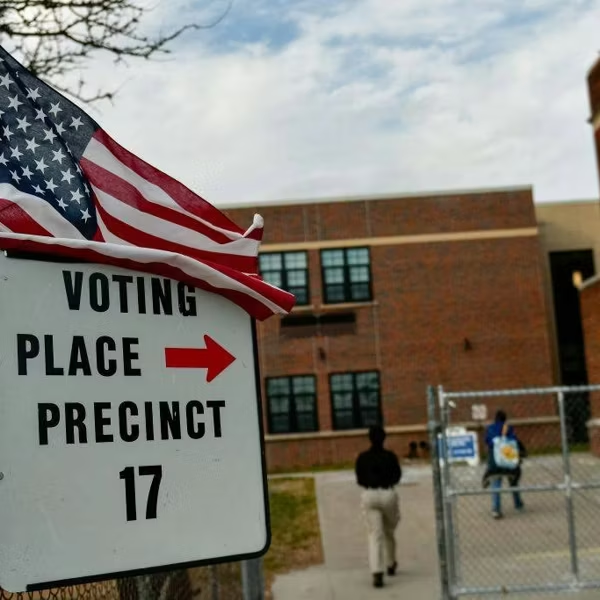As a pair of studies published this week detailed some of the struggles faced by many transgender people in the United States, researchers reiterated the necessity of inclusive policies and highlighted the Trump administration's various attacks on LGBTQ rights.
"We are in a time when transgender people are being denied equal rights--to jobs, to housing, to healthcare, and to participation in the military," Julia Raifman, an assistant professor at Boston University's School of Public Health who co-authored one of the studies, said in a statement Friday, referencing some of the administration's actions targeting the trans community.
Since President Donald Trump and Vice President Mike Pence took office in 2017, the administration has pursued policies to permit workplace discrimination against LGBTQ employees, gut protections against discrimination for LGBTQ patients, allow taxpayer-funded homeless shelters to turn away trans individuals, purge trans troops from the U.S. military, roll back protections against sexual assault for LGBTQ inmates, and thwart global efforts to ensure the human rights of the LGBTQ people.
The study Raifman co-authored, published Friday in the American Journal of Preventive Medicine, revealed that U.S. college students who identify as transgender, gender nonconforming, genderqueer, and nonbinary--a group which researchers collectively called gender minority students--are two to four times more likely to experience mental health problems relative to their peers.
The Boston University researchers analyzed data from the 2015-2017 Healthy Minds Study, which used clinically validated methods to screen randomly selected students at 71 U.S. campuses for depression, anxiety, eating disorders, self-injury, and suicidality. They found that compared with 45 percent of cisgender students, 78 percent of gender minority students met the criteria for one or more of those mental health problems, and 58 percent of those gender minority students screened positive for depression in the previous two weeks.
"These data suggest that new policies eliminating equal rights for transgender people are affecting a population that already experiences a disproportionate burden of disease," said Raifman, referring to the Trump administration's policies. "As next steps, it will be important to evaluate whether equal rights or the elimination of equal rights for transgender people affects mental health disparities."
In addition to further research, lead author Sarah Ketchen Lipson, also a Boston University assistant professor, emphasized the need for inclusive policies at all institutions impacting the lives of trans people. According to her, "There has never been a more important time for colleges and universities to take action to protect and support trans, genderqueer, and nonbinary students on campus."
"Mental health outcomes, as well as negative educational outcomes like dropping out, are preventable," Ketchen Lipson said. "The most effective way to prevent them would be, from my perspective, through policy changes. Inclusive policies are necessary to advance equity. And that's what I really want these data to speak to."
"As a cisgender woman working on this topic, I think a lot about allyship and how I can conduct and disseminate research to advance advocacy efforts," she added. "First and foremost, allies on campus need to listen to and make space for the voices of trans people."
Raifman and Ketchen Lipson's research on mental health disparities for gender minority students was released just a day after a study published in the American Journal of Public Health that revealed nearly 200,000 transgender people in the United States have been exposed to so-called conversion therapy during their lifetimes.
Reporting on that study, NBC News explained:
"Conversion therapy" refers to efforts to change an LGBTQ person's gender identity or sexual orientation and has been condemned by nearly every major health association, including the American Medical Association, the American Psychological Association, and the American Academy of Pediatrics.
Using data from the National Center for Transgender Equality's 2015 U.S. Transgender Survey and UCLA's Williams Institute, researchers from Harvard and The Fenway Institute estimated that 187,923 trans people across all 50 states--or approximately 13.5 percent of the country's estimated 1.4 million self-identified trans individuals--have been subjected to attempts to change their gender identity by a "professional," such as a psychologist, counselor, or religious adviser.
"Our research team was extremely concerned to find that this practice, which is widely discredited by major medical organizations, was so prevalent," Dr. Jack Turban, a resident physician in psychiatry at Harvard Medical School and the study's lead author, told NBC News in an email.
In previous research on mental health outcomes for transgender individuals, Turban found that exposure to conversion therapy is "associated with severe mental distress, suicide ideation, and suicide attempts." Turban told NBC he hopes the new study will help influence policymakers weighing bans the practice for minors.
Such bans have been passed in 18 states and the District of Columbia. However, "in the past, some state legislators have argued that such bans are not necessary because gender identity change efforts do not occur in their state," Turban noted, citing as an example Maine's former Gov. Paul LePage, a Republican who vetoed a ban last year.
Challenging claims from LePage and other policymakers that the pratice doesn't happen in their states, Turban said: "Our findings show that this is false... Transgender people in every U.S. state reported exposure to gender identity change efforts."




